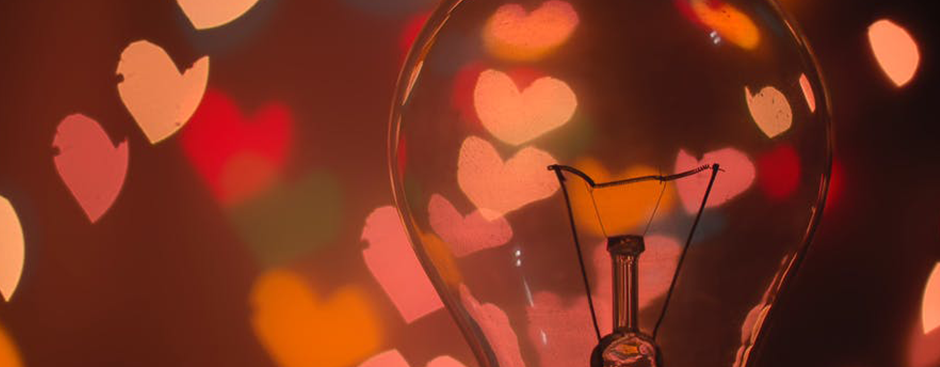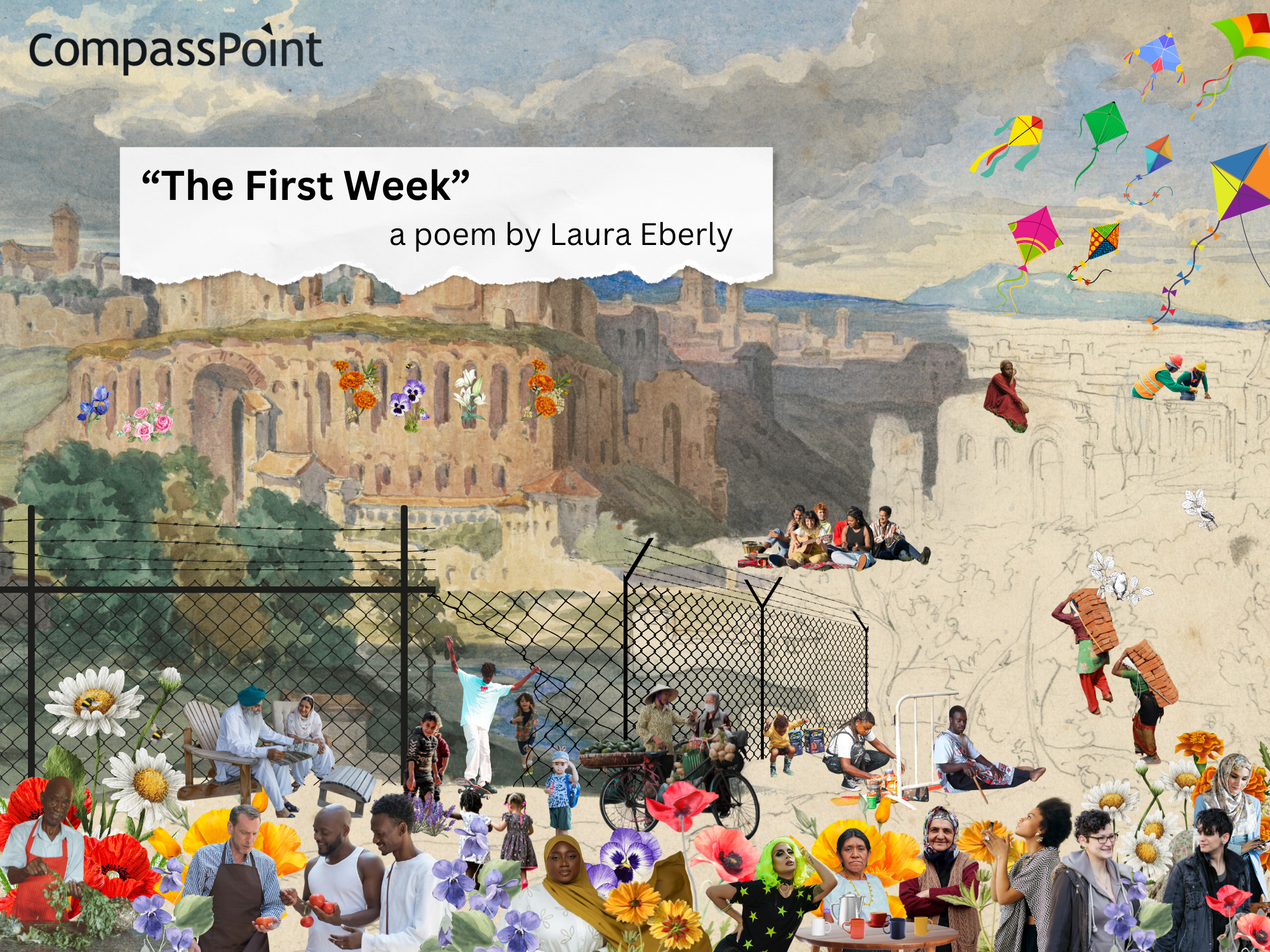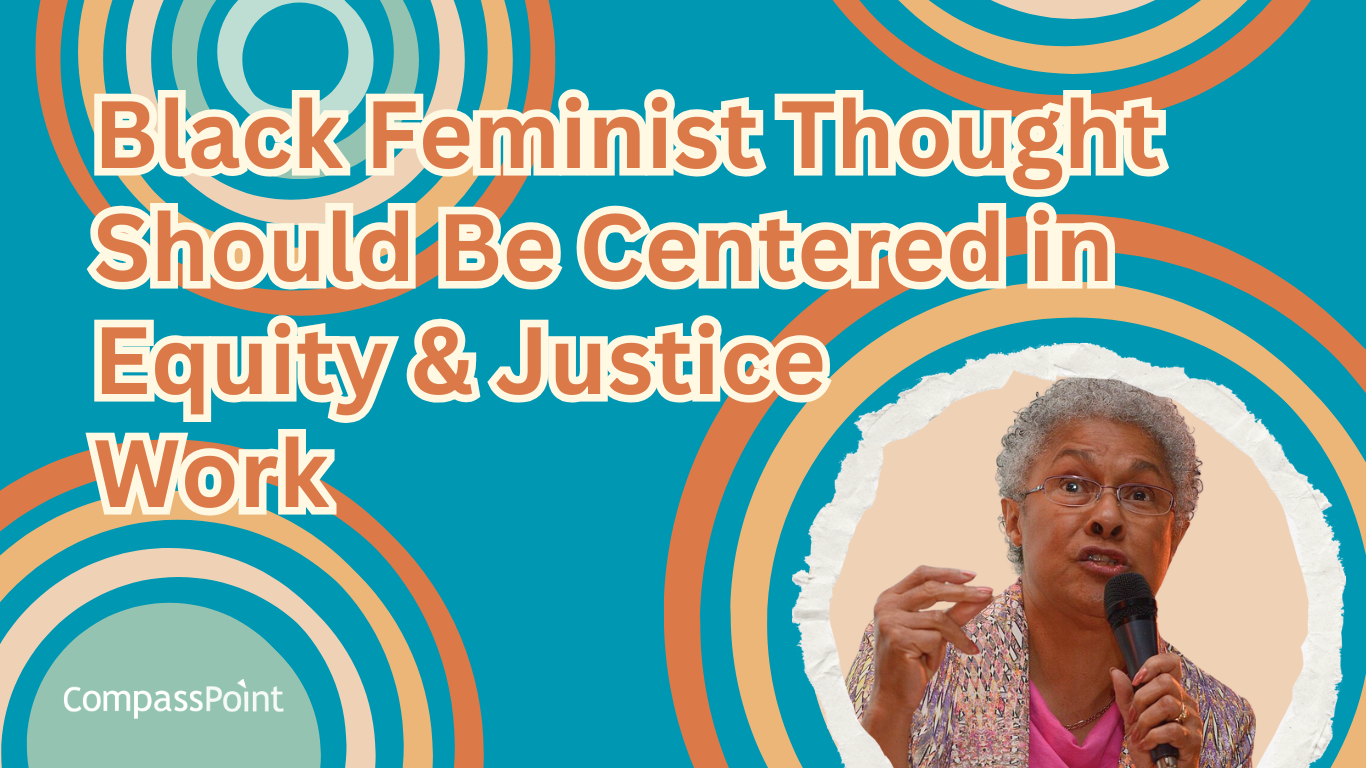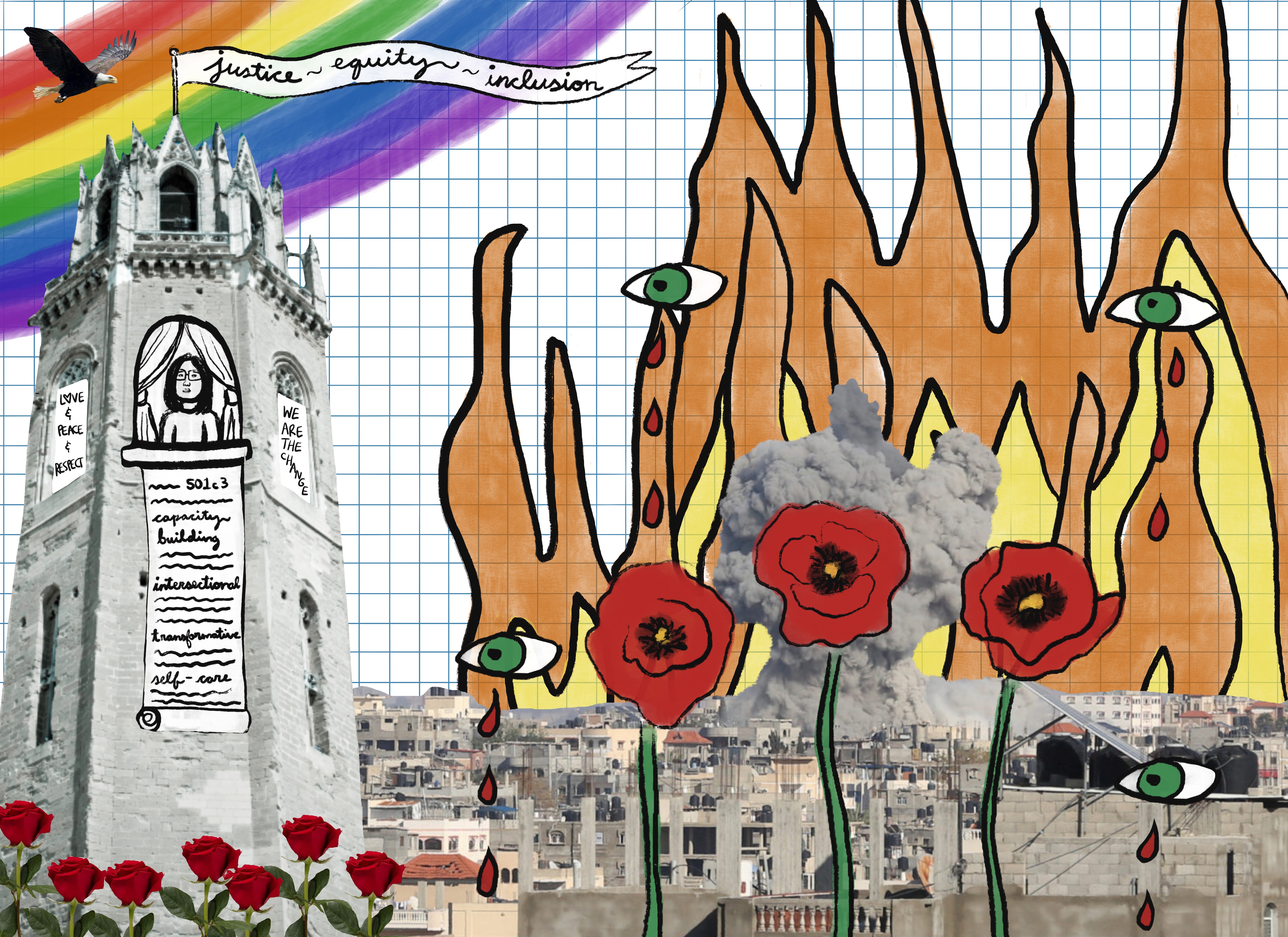In this guest blog, Lauren (Finn) Lofton (Senior Subsidized Housing Advocate & Policy Analyst for Housing Rights Committee of San Francisco and a participant in CompassPoint's Public Training Program) asks: how can we center self-care in social justice movement work?
 "Caring for myself is not self-indulgence, it is self-preservation, and that is an act of political warfare.”
"Caring for myself is not self-indulgence, it is self-preservation, and that is an act of political warfare.”
—Audre Lorde
My story is complicated, involves heart wrenching moments, and is full of hope all at the same time. I grew up in the Bay Area. I came into my queer and trans bi-gender identity as a person of color here. I live at many intersections of many identities and on the periphery of multiple communities all of which are critical to aspects of who I am. Contrary to popular belief, though I was born and raised in the Bay Area, I did not get handed a social justice handbook detailing how to navigate social justice concepts.* I am grateful that the Bay Area community is so special in that we demand intersectional analysis that is inclusive of my many identities.
[*NOTE FROM THE AUTHOR: While I did not receive the benefits of such an education as a young one here; there is a magical place, that presently exists in the Bay Area, where children are given these tools. This magical place is called Abundant Beginnings. You can read more about their program and help support by visiting: http://abundantbeginnings.org/ (shared with consent). Hopefully, schools such as these ones will grow and thrive and many more children will learn the above skills with care and support; and in an environment where they can safely make mistakes together. These children are given opportunities to read about and practice social justice skills from well the beginning.]
Like many of us, I have learned about the above skills as an adult, messily, over a long period of time. I have learned these lessons the hardest way possible through interpersonal conflicts, romantic interactions, getting disposed of by others, and at times behaving in ways that were incredibly unkind to myself and others. Dismantling internalized oppression is necessary and extraordinarily difficult personal work. The work of contributing to a world where we live by shared values includes: acknowledging painful histories, taking emotional risks by challenging one another’s understanding related to power and privilege; and lifting up the voices of those who are most marginalized in our communities even if those voices do not have the same vocabulary or tools to meet what many of us hold as a community standard.
Those community standards are so nuanced that I have watched people’s feelings of shame and hopelessness around being good enough with their words and actions interfere with sustaining participation in movement work. Watching people in my communities replicate oppressive systems and re-traumatize one another is incredibly disheartening. I have watched people near and dear to my heart sever ties to one another and stop participating in movement work altogether. Even as the popularity of the word self-care has risen, I have observed that many people around me have stopped believing in the value of the practice.
I noticed that I was also engaging in these behaviors, at times rolling my eyes at the concept of self-care. As my burnout level rose, I found myself unable to participate in movement work. I found myself hiding out, staring at the ceiling, and holding my cat more often. At some point, I realized that my body was shutting down, forcing me to focus on myself. These inadvertent moments of self-care created more emotional space and allowed me to show up in ways I was unable to show up without it. In the process of reaching a self-care low, I was reminded that our incredible capacity to commit to one another’s struggles is only as strong as our ability to care for ourselves within structures typically not set up to support self-care.
I began focusing on asking myself questions like:
- Do I want to attend this activity or do I feel obligated?
- Am I offering my labor to prove myself worthy of the community I live in; or do I know I’m worthy and am I offering help from a place of having plenty of capacity to do so?
- Am I inspired to use the tools I had at my disposal because of my connection to community members in need of support?
- Do I have the capacity to both forgive someone and to remain in community with them if they are willing to do work to improve?
- Is there a friend available to talk through feelings that might come up for me after participating in an event? Has that friend consented to providing their emotional labor?
Over time, these questions became simpler. Instead, I began asking myself:
- Can I identify one hope I have for my immediate future (today, this week, this month)?
- Did I eat well today (as defined by myself and not the rest of the world)?
- Did I move my body in some way that could be helpful for my body’s needs?
- How much sleep did I get?
- How do I feel in my body?
- How much water have I had today?
- Have I been outside at all today?
- What is one emotion that I can identify feeling today?
- When is the last time I was in nature?
- When is the last time I did a self-focused activity (reading for fun, listening to music, meditation, cooking for myself)?
I realized that if I could answer the simpler questions I had more space to get to the complex questions. For the first time, I started thinking about how to make the choice best rooted in emotional and physical self-preservation. This act is certainly radical in a society set up to value workaholicism, and productivity over emotional well-being; financial means over personal connection. Whether your labor is in a corporate setting, an under-funded non-profit, or attempting to survive on a fixed-income due to your disability and or age status, it is incredibly difficult to take care of yourself and not have feelings of self-judgment and sadness come up at times.
Many of us find ways to be competitive with self-care in an unconscious act of emotional violence toward ourselves. Comparing the number of acupuncture treatments, therapy sessions, days of exercise (or lack thereof) to one another creates feelings of shame and does not support our healing. Moreover, when our identities include socialization where we have historically been forced to be silent about our needs—specifically as women, as people of color, as disabled folks, as neuro-atypical folks, and individuals struggling with mental health conditions— it is absolutely an act of resistance and political warfare to center and prioritize ourselves.
Finding ways to be kind to ourselves is a gift we can offer to ourselves and our community because of the space it gives us to engage in the emotional labor of deconstructing oppressive structures related to a seemingly endless list of “isms.” I offer the above, my own strategies for self-care, in the hope it may inspire others in this community to find their own path for healing themselves, and for our communities as a whole.
Lauren Lofton is a queer, gender queer (transgender spectrum), person of color, social justice advocate and attorney born and raised in the Bay Area. They earned a J.D. in Public Interest Law from University of California, Davis in 2009. Lauren is dedicated to a legal practice with an intersectional, social justice lens that is grounded in compassion. Lauren provides anti-eviction services to low-income tenants at Housing Rights Committe of San Francisco, and provides anti-oppression consultant, facilitation and mediation support to agencies throughout the Bay Area. When Lauren isn't at work they can be found: accompanying their godchildren to local museums; reading science-fiction especially Octavia Butler; exploring the same local parks and oceans they explored as a child; and spending time at the East Bay Meditation Center. Their queer community and close friends call them Finn.
Resources:





Submit a comment